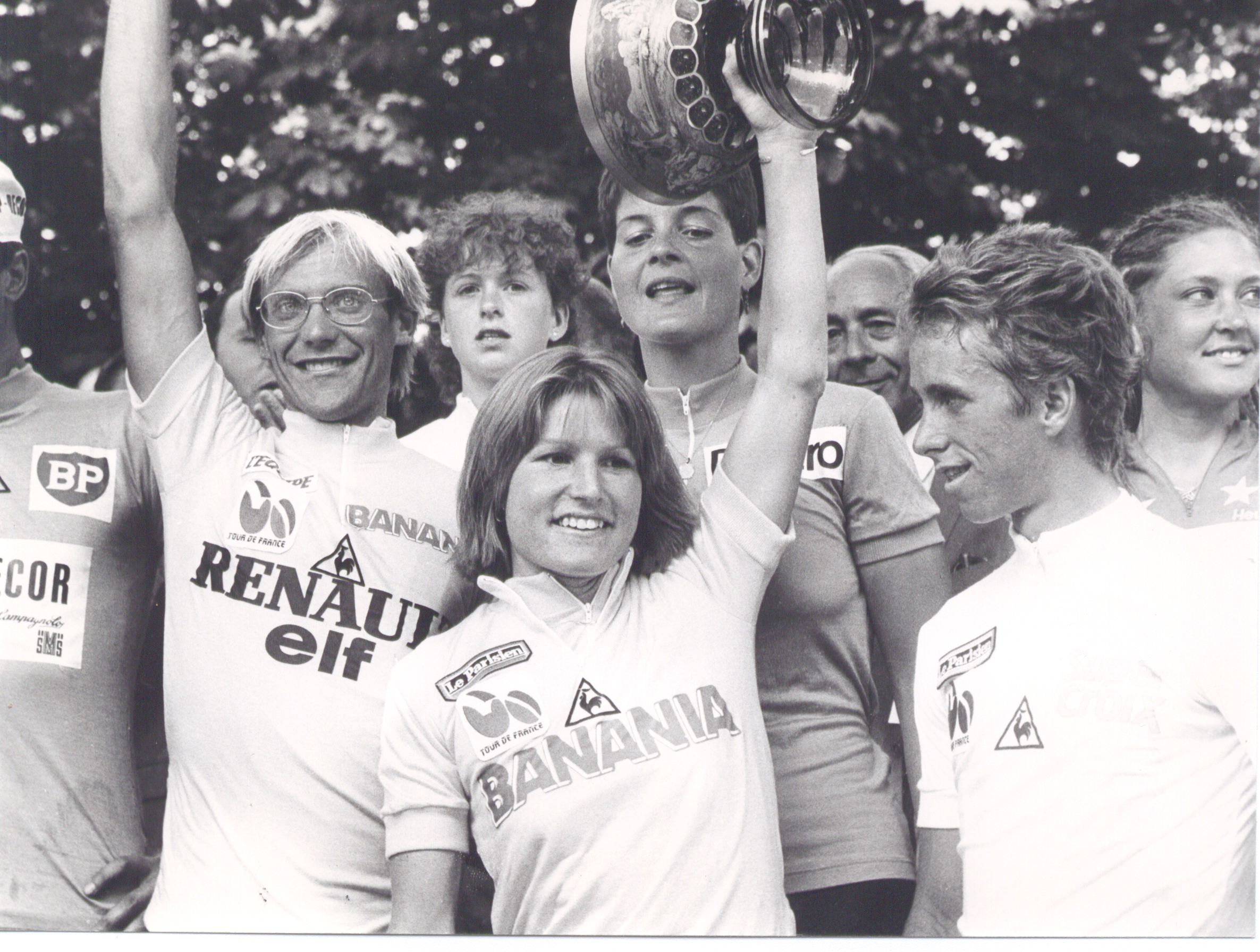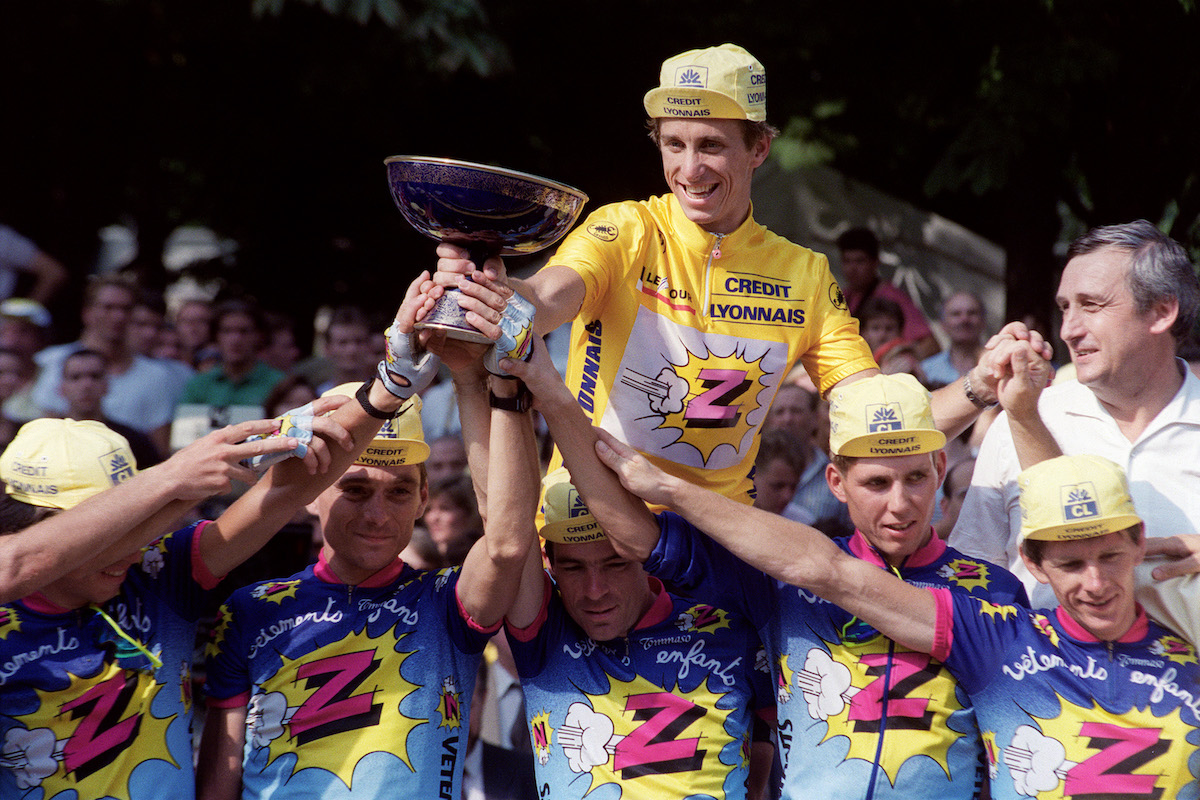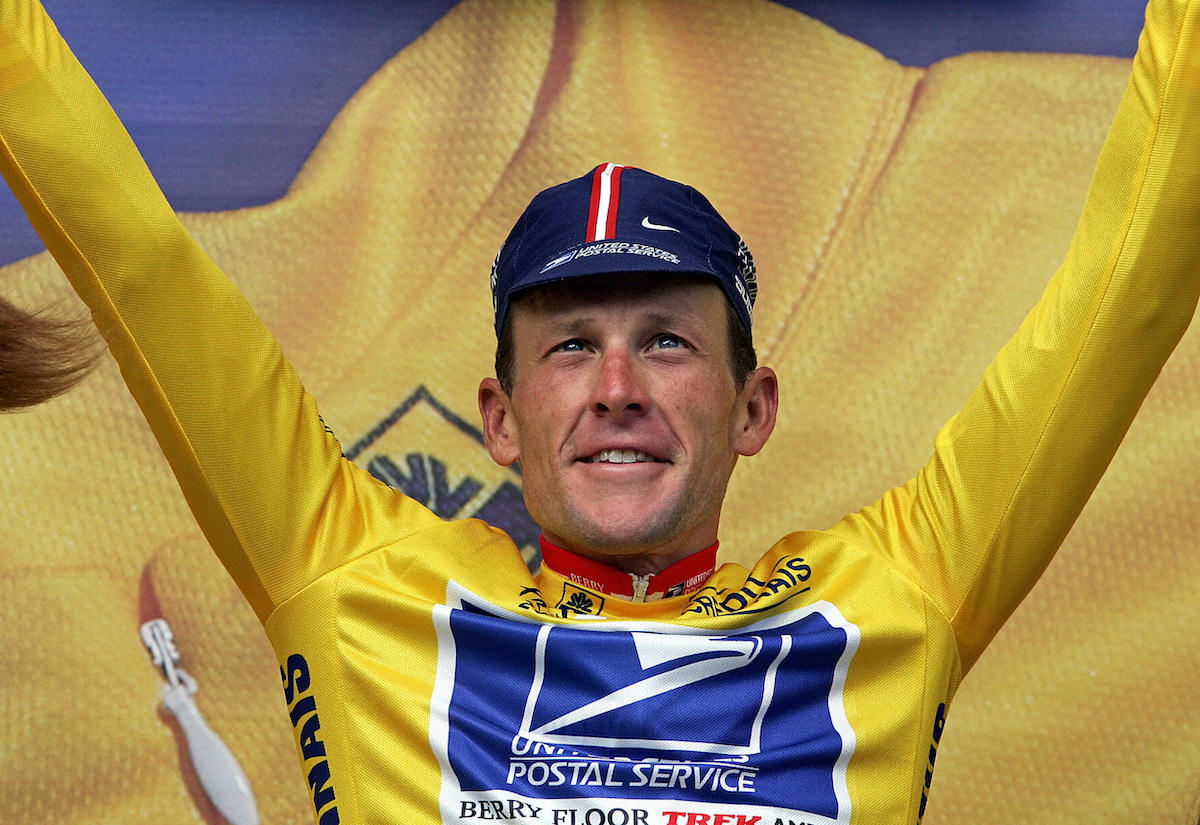The lone American to have worn the yellow jersey, and the four who were stripped of their achievements
Officially, the last time an American wore the yellow jersey was in the Tour de France of 1991


The latest race content, interviews, features, reviews and expert buying guides, direct to your inbox!
You are now subscribed
Your newsletter sign-up was successful
This year, there are just three Americans in the peloton of 176 riders at the Tour de France but based on their strong performances of late, this small contingent holds great promise albeit for stage wins rather than the coveted Maillot Jaune.
After winning the red jersey at Vuelta a España last year and thereby becoming the first American to win a Grand Tour in a decade, Sepp Kuss allowed American fans to once again hope. Hope for a U.S. road racing revival. Hope for an American cycling hero like the days of he-who-must-not-be-named. Certainly, there hasn't been an American contingent as strong and as exciting as the likes of Kuss, Matteo Jorgenson, Neilson Powless, Brandon McNulty and Magnus Sheffield.
This crop of riders have been very visible in the Tour de France these past few editions, wearing the Polka Dot jersey, winning a stage and netting the Most Aggressive Rider honours, yet the yellow jersey has eluded the Americans since 2006. No 2005? No wait, 1999? Nope, none of the above.
The first American to win the yellow jersey

Of course, the very first American to win the yellow jersey was actually Marianne Martin, winner of the 1984 Tour de France Féminin. At this event, the women raced 18 stages over 22 days, on the same day and on the same courses (albeit shorter) as the men — 991 km (616 miles) in pursuit of yellow. Read the incredible journey of Martin's historic Tour de France win, here.
Officially, the last —and only— American male rider to have worn the yellow jersey is Greg LeMond back in 1991, when he wore the yellow jersey for five days.Unofficially, four additional Americans have collectively spent an impressive amount of days in the yellow jersey — 112 days if my calculations are correct.
It's well-known that Americans have a muddy Tour de France past. The 2012 United States Anti-Doping Agency (USADA) investigation into the doping practices carried out by the now-disgraced U.S. Postal team and Lance Armstrong particularly, revealed one of cycling's most shocking controversies.
The agency uncovered the most 'sophisticated, professionalized and successful doping program the sport has ever seen'. What's more, the publicly available 200-page Reasoned Decision document not only exposed a decade of the team's and Armstrong's doping practices, it also bared Armstrong's bribes and vicious threats to staff and teammates.
As a result, Armstrong was stripped of all his results from 1998 onward, including his seven Tour de France wins and the 83 days in the yellow jersey. Armstrong later confessed his crimes in an interview with Oprah Winfrey in January 2013.
The latest race content, interviews, features, reviews and expert buying guides, direct to your inbox!
Several of his American former teammates were also suspended and retroactively disqualified from all races they competed in while doping, including three once yellow jersey wearers.
Unofficially, four additional Americans have collectively spent an impressive amount of days in the yellow jersey — 112 days if my calculations are correct.
It's well-known that Americans have a muddy Tour de France past. The 2012 United States Anti-Doping Agency (USADA) investigation into the doping practices carried out by the now-disgraced U.S. Postal team and Lance Armstrong particularly, revealed one of cycling's most shocking controversies.
The agency uncovered the most 'sophisticated, professionalized and successful doping program the sport has ever seen'. What's more, the publicly available 200-page Reasoned Decision document not only exposed a decade of the team's and Armstrong's doping practices, it also bared Armstrong's bribes and vicious threats to staff and teammates.
As a result, Armstrong was stripped of all his results from 1998 onward, including his seven Tour de France wins and the 83 days in the yellow jersey. Armstrong later confessed his crimes in an interview with Oprah Winfrey in January 2013.
Several of his American former teammates were also suspended and retroactively disqualified from all races they competed in while doping, including three once yellow jersey wearers.
Greg LeMond

Tour de France overall wins: 3 (1986, 1989, and 1990)
Days on the yellow jersey: 22
The first and only American to officially have worn the yellow jersey, LeMond, now 62, is considered the greatest American cyclist of all time.
LeMond won a total of five stages in the 1985, 1986 and 1989 Tour de France events, and is also one of just eight racers to have won a Tour de France General Classification without winning any one of the 21 stages that year. He did so in 1990.
He last won the yellow jersey in 1991 when he held the jersey for five days but ultimately finished in seventh place.
Lance Armstrong

Tour de France overall wins: 7 (1999-2005)
Days on the yellow jersey: 83
These days, Lance Armstrong is arguably the most controversial figure cycling has ever seen. The Texan enjoyed almost a decade of glory as he racked up seven consecutive editions of the Tour de France, and 22 individual stages and 11 individual time trials along the way.
He spent an astonishing 83 days in yellow yet all of these records have been removed from the record books, following investigation by the United States Anti-Doping Agency (USADA).
In addition to having his results voided, Armstrong was given a lifelong ban from cycling competitions.
Floyd Landis

Tour de France overall wins: 1 (2006)
Days on the yellow jersey: 5
Floyd Landis was recruited to the U.S. Postal team by Lance Armstrong ahead of the 2002 season, and served as Armstrong's domestique in the 2002, 2003 and 2004 Tours.
In 2005, he switched to Phonak who tagged him as their Tour de France leader. He finished ninth overall in 2005 went on to win it the next year. However, on July 27, 2006, four days after the Tour had finished, the Phonak cycling team announced that Landis had tested positive for synthetic testosterone after his race-winning performance in stage 17.
The International Cycling Union (UCI) stripped him of his Tour title. Landis was one of the key players in Armstrong’s downfall after he accused former teammate of doping in 2010 and later filed a whistleblower lawsuit against him as well..
These days, he owns a successful cannabinoid business making both medical and performance oriented CBD products as well as recreational THC drugs.
David Zabriskie

Tour de France overall wins: 0
Days on the yellow jersey: 3 (2005)
Another former U.S. Postal team member, David Zabriskie spent 14 years racing as a pro, winning stages in all three Grand Tours and claiming six U.S. National Time Trial Championship titles.
In 2005, he became the third American ever to wear the leader's jersey at the Tour de France. In the opening time trial Zabriskie beat Armstrong by two seconds and set the record for the fastest time trial in Tour de France at the time with an average speed of 54.676 km/h.
All this was of course undone by the revelations about his use of performance enhancing drugs while part of the U.S. Postal team. In 2012, Zabriskie accepted and served a six-month ban from competition, and the disqualification from racing results between May 31, 2003 to July 31, 2006.
Zabriskie returned to racing after his ban and went on to win numerous time trial events, including five national time trial titles and a bronze time trial medal at the 2008 UCI World Championships. He retired in 2013.
George Hincapie

Tour de France overall wins: 0
Days on the yellow jersey: 1 (2006)
A key part of Lance Armstrong's U.S. Postal and Discovery teams, George Hincapie was by the Texan's side for all seven of his Tour victories. He also worked for Alberto Contador in his 2007 winning ride and was a key member of Mark Cavendish's lead-out train for Columbia-High Road. The tall domestique started a record 17 Tour de France events and five consecutive Olympic Games between 1992 and 2008. He wore yellow for one day in the 2006 Tour.
During the 2012 USADA investigation, Hincapie admitting to having used performance-enhancing drugs and was served a six-month suspension and disqualification from all results between May 31, 2004 to July 31, 2006.
He retired at the end of 2012, the same year he became the owner and general manager of UCI Professional Continental team Hincapie–Leomo p/b BMC until it folded at the end of the 2020 season.

Cycling Weekly's North American Editor, Anne-Marije Rook is old school. She holds a degree in journalism and started out as a newspaper reporter — in print! She can even be seen bringing a pen and notepad to the press conference.
Originally from the Netherlands, she grew up a bike commuter and didn't find bike racing until her early twenties when living in Seattle, Washington. Strengthened by the many miles spent darting around Seattle's hilly streets on a steel single speed, Rook's progression in the sport was a quick one. As she competed at the elite level, her journalism career followed, and soon, she became a full-time cycling journalist. She's now been a journalist for two decades, including 12 years in cycling.